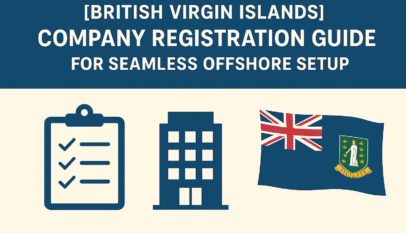
Many individuals worry that bad credit will prevent them from securing a mortgage. Fortunately, there are options available for those with less than perfect credit, including government-backed loans and alternative lenders that specialize in high-risk borrowers. Exploring these avenues can unveil opportunities that may not have been considered initially.
Understanding the specific requirements of different loan programs can empower borrowers to make informed decisions. While traditional lenders may impose strict credit criteria, alternatives like mortgage with bad credit options exist that can facilitate homeownership despite credit challenges. It’s essential to research and compare various offerings to find the best fit.
The journey to mortgage approval with bad credit may seem daunting, but it is achievable with the right knowledge and strategy. By focusing on proactive steps, such as improving credit scores and exploring tailored lending options, individuals can enhance their chances of obtaining the financing they need.
Understanding Mortgages With Bad Credit
Navigating the mortgage landscape with bad credit can be challenging. Several factors come into play, including credit scores, mortgage types available, and lender considerations. Understanding these elements is essential for borrowers seeking financing despite a less-than-ideal credit history.
Impact of Credit Scores on Mortgage Eligibility
Credit scores play a significant role in mortgage eligibility. Generally, a score below 580 is considered poor, making it difficult to qualify for traditional loans. Lenders typically use credit scores to gauge the risk of lending.
A lower score may necessitate a larger down payment, often exceeding 20%. This is due to lenders’ increased risk tolerance. Borrowers may also face higher interest rates as a result of their credit score. This can lead to increased monthly payments and a higher overall loan cost.
Types of Bad Credit Mortgages
There are specific mortgage options available for those with bad credit.
- FHA Loans: Backed by the Federal Housing Administration, these loans allow scores as low as 580 with a 3.5% down payment.
- Subprime Mortgages: These loans cater to borrowers with lower credit scores but often come with higher interest rates.
- VA Loans: Available for veterans, these loans have no minimum credit requirement but require proof of service.
Each type has unique terms and eligibility requirements. Borrowers must weigh these options carefully to find the right fit.
Key Factors Lenders Consider
Lenders look at various factors beyond just the credit score when evaluating mortgage applications.
- Debt-to-Income Ratio: Lenders prefer a ratio below 43%. This measures monthly debt payments against gross monthly income.
- Employment History: A steady job indicates financial stability, which lenders favor.
- Down Payment: A larger down payment can improve chances of approval and potentially lead to better loan terms.
Understanding these considerations can empower borrowers to strengthen their applications.
Improving Your Chances of Approval
Improving the chances of mortgage approval for individuals with bad credit involves specific strategies. Focus on credit repair, exploring loan options, and considering supportive financial arrangements.
Strategies to Rebuild Your Credit
Rebuilding credit is crucial for mortgage approval. Individuals can begin by checking their credit reports for errors and addressing inaccuracies. Timely payments on existing debts can boost credit scores significantly.
Additionally, reducing credit card balances below 30% of the limit is advisable. This not only lowers credit utilization but also signals responsible credit behavior. A diverse mix of credit types, such as payments on installment loans or retail cards, can also enhance credit profiles.
Lastly, consider establishing a secured credit card. Responsible usage over time demonstrates creditworthiness, ultimately leading to improved approval odds.
Exploring Government-Backed Loans
Government-backed loans offer options for those with bad credit. Programs like FHA loans are designed to assist buyers with less-than-perfect credit scores. FHA loans may allow for credit scores as low as 580, or even lower with larger down payments.
USDA loans provide another viable option for rural property buyers, often with minimal credit requirements. VA loans for veterans typically do not impose strict credit guidelines, making these loans accessible.
These loans often feature lower down payments, competitive interest rates, and reduced mortgage insurance costs, which can significantly ease financial burdens.
Considering Cosigners and Down Payments
Utilizing a cosigner can greatly enhance approval odds. A cosigner with a stronger credit history can provide additional security to lenders. This can make lenders more comfortable when approving loans for individuals with bad credit.
In addition, a larger down payment can show financial commitment. A down payment of 20% or more may alleviate lender concerns about credit risks.
Ultimately, this dual approach of involving a cosigner and increasing the down payment can create a strong application. It reflects both responsible financial practices and a lower risk for lenders.
British Virgin Islands Company Registration Guide for Seamless Offshore Setup
Registering a company in the British Virgin Islands (BVI) is a straightforward process tha…









